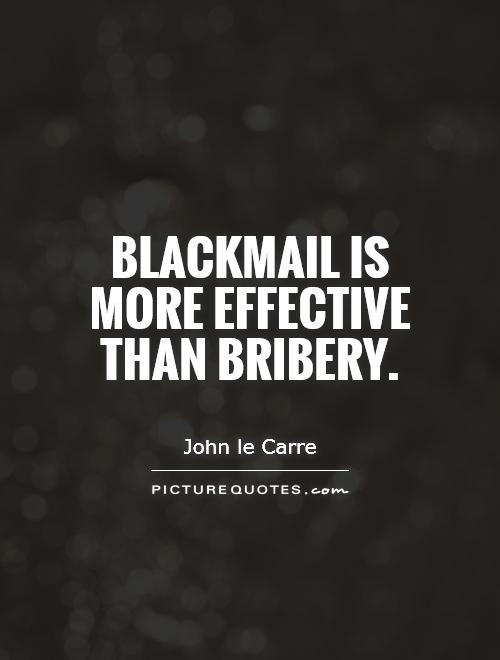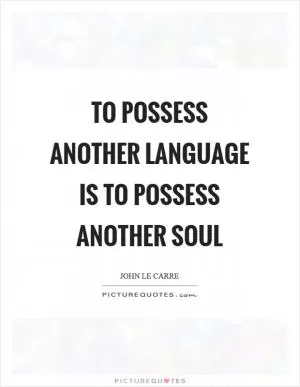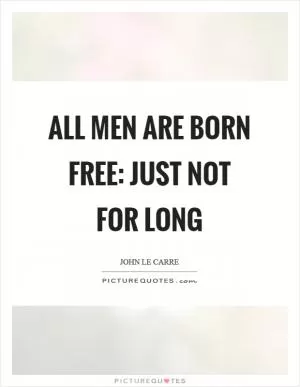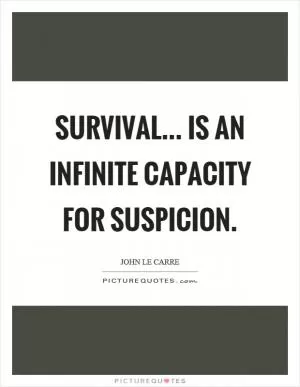Blackmail is more effective than bribery

Blackmail is more effective than bribery
In the world of espionage and intrigue depicted in the novels of John le Carré, blackmail is often portrayed as a more effective tool than bribery. Le Carré's characters navigate a complex web of deception, betrayal, and manipulation, where information is power and secrets can be used as leverage to achieve one's goals.Blackmail is a particularly potent weapon in the hands of skilled operatives, as it allows them to control and manipulate their targets without their knowledge. By threatening to expose damaging information or secrets, a blackmailer can force their victim to comply with their demands, whether it be providing valuable intelligence, carrying out a dangerous mission, or betraying their own allies.
In le Carré's novels, characters such as George Smiley and Karla are masters of the art of blackmail, using their knowledge of their adversaries' weaknesses and vulnerabilities to gain the upper hand in the high-stakes world of espionage. In "Tinker, Tailor, Soldier, Spy," for example, Smiley uncovers a Soviet mole within the British intelligence service by exploiting the guilty conscience of one of his former colleagues, forcing him to confess to his crimes.
Bribery, on the other hand, is often portrayed as a more straightforward but ultimately less effective tactic in le Carré's world. While money can buy loyalty and cooperation, it is not always enough to guarantee the desired outcome, especially when dealing with individuals who are motivated by ideology, loyalty, or personal vendettas.












 Friendship Quotes
Friendship Quotes Love Quotes
Love Quotes Life Quotes
Life Quotes Funny Quotes
Funny Quotes Motivational Quotes
Motivational Quotes Inspirational Quotes
Inspirational Quotes